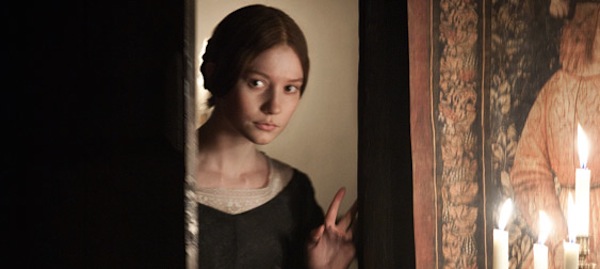 If you missed last week’s screening of Project Nim, I’m not gonna lie, you probably feel a bit better about the world, and yourself, than those of us who attended. However, in exchange for our collective humility, James Marsh’s film has offered the rest of us a perspective on ourselves as we’ve never quite seen us—through the dark, piercing, frustrated, yet forgiving eyes of a chimpanzee. This is Nim, who in gaining language lost his voice. And though his story is filled with its share of gut-wrenching disappointment and epically human failure, we are not ultimately invited to feel sorry for Nim. No, that sinking sensation in the pits of our stomachs is more reminiscent of the kind of existential nausea that can only be born of self-pity. Nim’s life is no more terrible than the lives of millions of other humans and chimpanzees alike who have been the “project” of one ill-fated experiment or another. Project Nim is an intriguing look at how humans use each other, as means towards disastrous ends, and it is a display of the true naivety with which we live our daily lives.
If you missed last week’s screening of Project Nim, I’m not gonna lie, you probably feel a bit better about the world, and yourself, than those of us who attended. However, in exchange for our collective humility, James Marsh’s film has offered the rest of us a perspective on ourselves as we’ve never quite seen us—through the dark, piercing, frustrated, yet forgiving eyes of a chimpanzee. This is Nim, who in gaining language lost his voice. And though his story is filled with its share of gut-wrenching disappointment and epically human failure, we are not ultimately invited to feel sorry for Nim. No, that sinking sensation in the pits of our stomachs is more reminiscent of the kind of existential nausea that can only be born of self-pity. Nim’s life is no more terrible than the lives of millions of other humans and chimpanzees alike who have been the “project” of one ill-fated experiment or another. Project Nim is an intriguing look at how humans use each other, as means towards disastrous ends, and it is a display of the true naivety with which we live our daily lives.
(How did you like Project Nim? Go here to vote!!)
I don’t know about you, but I could use a good period piece right about now.
Jane Eyre plays this Thursday, the third installment of the Cape Breton Island Film Series. It is a gothic tale of love, lies, and redemption. At least that’s what my Sparknotes tell me.
Roger Ebert, much like Nim, has lost his voice but is still full of language. His review of Jane Eyre shames the rest of us who dare imagine ourselves true critics and connoisseurs of film:
“Gothic romance attracts us with a deep tidal force. Part of its appeal is the sense of ungovernable eroticism squirming to escape from just beneath the surface. Its chaste heroines and dark brooding heroes prowl the gloomy shadows of crepuscular castles, and doomy secrets stir in the corners. Charlotte Bronte’s Jane Eyre is among the greatest of gothic novels, a page-turner of such startling power, it leaves its pale latter-day imitators like Twilight flopping for air like a stranded fish.”
And here I was, thinking I’d lure you there with popcorn and air hockey.
As I see it, you can have three basic relationships with Jane Eyre. There are those of you who’ve read the Bronte classic and appreciate the dark, chilling human complexities at play in the story of a “plain” woman trying to earn respect and love in a strange and psychologically volatile world.
Then there are those of you who read it, and missed that part.
And there are those of you, like me, who have never read the book, or seen the movie, and we have no idea what we’re missing.
And yet, in a sense, we all know the story of Jane Eyre. Whether or not you’ve read the spoilers, you’ve already got a strong sense that something is amiss. That nothing is so simple as falling in love. That there is a story, and a story behind it, and a story behind it still. We know all of this before we’ve even sat down, and there is no limit to how deeply we can know it.
If you don’t know what I’m talking about, you’re wrong. You do know. You’ll see.
According to critics, director Cary Fukunaga has remade this Bronte tale with all the darkness, madness, and mental anguish it deserves. So why ruin it with celebrity name dropping or high school level summarization? What will be revealed to us on Thursday is not a 200-year-old plotline, but a chasm of spiralling insanity that can only ever reveal to us ourselves.
Jane Eyre holds a flickering candle to the shadowy corners of our secret lives, but ultimately it leaves us in the dark. And so, we revisit the story because we have to: because its shame and uncertainty continue to haunt our collective unconscious; because we know what is going to happen before it begins, and still it terrifies us, every time.

